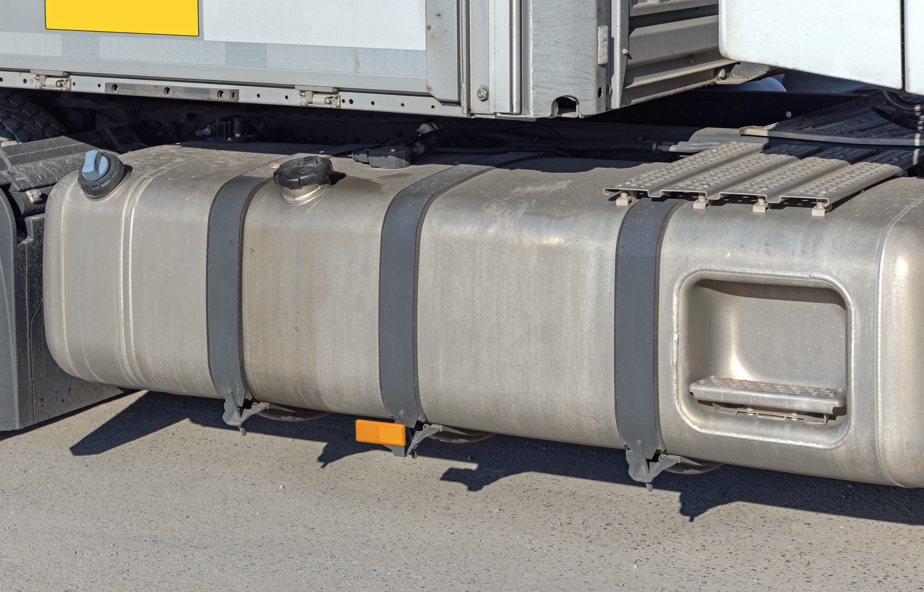There’s a worldwide shortage of urea, which means trouble for transport businesses. Urea is a critical ingredient in additives to reduce diesel engine emissions, such as AdBlue. Supply and demand inbalances have pushed up urea’s price, so AdBlue production has fallen.
Estimates vary, but there’s enough AdBlue in Australia to keep our transport fleets running until sometime in the first quarter of 2022. Government and industry are working together to find solutions – but the outlook remains uncertain.
What is AdBlue?
AdBlue is a liquid injected into diesel engine exhaust systems. It’s a mixture of urea and deionised water that converts nitrogen oxides into nitrogen and water, significantly reducing harmful emissions. Drivers of later model cars and 4WDs may be familiar with the blue AdBlue cap that sits beside the diesel fuel cap on their vehicles, whereas trucks have a separate AdBlue tank and fill point.
Modern diesel engines will automatically go into ‘limp mode’ without it, so if supplies run out, then potentially thousands of trucks will effectively be unable to operate.
Why is there a shortage?
Urea is an organic compound – CO(NH2) 2 – and a key ingredient in most fertilisers. It’s also used in plastics, cosmetics, resins, explosives, laboratory research, medical products, soap, animal feed, beer and many grocery items, from beans to steak.
In recent months demand for key crops including corn, soy and wheat has surged. Seeking to maximise their yields, farmers have used more fertiliser, which has increased demand for urea and pushed prices up.
Urea’s primary feedstock is gas, but there are complications here too. Key US refineries have closed thanks to hurricane Ida, leading to more scarcity and higher prices.
Currently, China produces around 10 per cent of the world’s urea (and one-third of the world’s diammonium phosphate, another key agricultural input). To keep its farmers supplied with fertiliser, the government has closed exports until June 2022.
This measure has hit most countries hard, and Australia is particularly exposed. We import around 90 per cent of our urea, with some 80 per cent coming from Chinese producers.
What is being done to secure supplies?
In Australia, the federal government, Australian Trucking Association (ATA), National Road Transport Association (Natroad) and other industry groups are working to secure reliable supplies of AdBlue. NTI is supporting our association partners as they address this issue with the government. Potential solutions include:
- expanding local production
- re-mapping engines to accept lower-grade additives
- banning most exports of urea-based products
- working on government-to-government trade deals.
The outlook isn’t dire. Shipments en route will cover another few weeks. After the holiday season, there’ll be less pressure on global logistics networks. Another measure would be for the Australian Competition and Consumer Commission to relax our anti-collusion rules to allow suppliers to share information and cooperate better. The ACCC did this in 2020 to help banks, medical suppliers, supermarkets and telecommunications companies prepare for COVID-19.
What does it mean for transport businesses?
The implications for transport businesses are potentially severe. Without AdBlue, most modern diesel engines will automatically de-rate and won’t operate beyond moving the truck off the road.
Operating without AdBlue, assuming it was logistically feasible to re-map the existing truck fleet to function without it, would also require temporary changes to Australian emission standards.
In the meantime, prices are rising, adding further cost pressures.
How can your customers prepare?
Our association partners are recommending that fleet operators adopt fuel-saving measures now to extend their fleets’ ability to operate. Panic buying is counter-productive, but prudent measures to plan and manage existing supplies and encourage drivers to operate more efficiently.
The transport industry associations and government working groups are working hard to find solutions for the short-term problem and secure our alternate long-term supply. We believe the outlook is positive – but prudent businesses will start planning and adapting now to minimise any disruptions.
